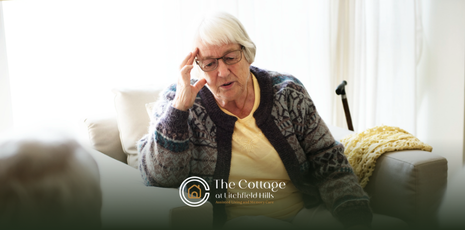The Role of Routine and Safety in Memory Care Settings

For seniors with memory loss conditions like Alzheimer’s or other forms of dementia, maintaining a sense of security and comfort is essential. Memory care communities are specifically designed to meet these needs. Two of the most critical elements in these settings are routine and safety.
A consistent daily routine helps minimize confusion, reduce anxiety, and support cognitive function. Meanwhile, a secure environment protects residents from potential hazards and allows them to move around with confidence. Together, these two pillars form the foundation of quality memory care.
In this blog, we’ll explore the powerful impact of routine and safety in memory care communities and why they matter for both residents and their families.
Why Routine Matters in Memory Care
People with dementia often struggle with memory, decision-making, and time perception. This makes unpredictability overwhelming. Establishing a structured daily routine helps eliminate unnecessary confusion and provides a sense of control in an otherwise uncertain world.
Benefits of Routine:
- Reduces Anxiety: Knowing what to expect each day decreases stress and confusion.
- Improves Sleep Patterns: Set meal and activity times help regulate circadian rhythms.
- Supports Independence: Repetition strengthens memory and encourages participation in daily activities.
- Promotes Emotional Stability: Familiar routines provide comfort and a sense of accomplishment.
Daily Structure May Include:
- Set times for waking, meals, medications, and rest
- Scheduled activities like music therapy, crafts, or light exercise
- Regular personal care routines
- Quiet times for relaxation or reflection
These predictable patterns help residents feel grounded and secure while enhancing their ability to participate and enjoy their day.
The Psychological Power of Familiarity
Routine goes beyond structure, it taps into deep emotional memory. Even when short-term memory fades, emotional and muscle memory often remain intact. That’s why seniors may still respond positively to a favorite song, morning ritual, or walking path.
Examples of Familiar Routines That Can Spark Joy:
- Listening to the same song each morning
- Holding a favorite item during meals
- Brushing hair or teeth with familiar tools
- Walking the same hallway or garden path daily
These repetitive yet meaningful moments promote emotional well-being and create a safe, loving atmosphere.
Creating Personalized Routines in Memory Care
Effective memory care is not one-size-fits-all. It’s about understanding each resident’s history, personality, and preferences to build routines that are both structured and personal.
Elements of a Personalized Routine:
- Life Story Integration: Incorporating past hobbies or professions
- Cultural or Religious Practices: Honoring holidays or spiritual rituals
- Individual Preferences: Choosing favorite foods, music, or activity styles
- Family Involvement: Including phone calls, photos, or family visits in the daily flow
Memory care staff often work closely with families to gather this information and tailor routines that reflect who the resident is—not just what they need.
The Crucial Role of Safety in Memory Care
While routine supports emotional and cognitive health, safety protects physical well-being. Seniors with memory conditions are at higher risk of accidents due to disorientation, impaired judgment, or wandering. Memory care communities are designed to minimize these risks while preserving as much freedom as possible.
Key Safety Features in Memory Care:
- Secured Entrances and Exits: Prevent wandering while allowing supervised mobility.
- Emergency Call Systems: Residents and staff can summon help instantly when needed.
- Fall Prevention Measures: Handrails, non-slip flooring, and clutter-free spaces reduce fall risks.
- Monitored Medication Administration: Ensures residents take the right doses at the right times.
These features are embedded in the physical design of memory care facilities and in the daily practices of caregivers who are specially trained in dementia support.
Staff Training and Safety Protocols
The staff in memory care communities are trained to respond not just to physical safety concerns, but also to emotional and behavioral changes. Consistent monitoring and prompt action prevent minor issues from becoming serious emergencies.
Key Areas of Staff Training:
- Recognizing signs of distress or confusion
- De-escalating agitation or aggressive behavior
- Assisting with mobility while maintaining dignity
- Providing comfort during moments of disorientation
Routine wellness checks and staff presence create an environment where residents feel safe and supported every hour of the day.
Technology and Safety Enhancements
Modern memory care facilities use technology to enhance safety without compromising dignity.
Examples Include:
- Wearable Devices: Monitor location and health vitals in real time.
- Sensor Systems: Alert staff to movement in restricted areas or falls.
- Digital Care Plans: Keep staff updated on each resident’s preferences and needs.
These tools complement human care, adding an extra layer of protection and reassurance for both residents and their families.
The Family’s Role in Routine and Safety
Family involvement plays a crucial role in both routine development and safety assurance. Families provide valuable insight into their loved one’s past habits and emotional triggers, helping caregivers develop personalized care plans.
How Families Can Support:
- Share personal stories and preferences with staff
- Participate in family-centered care meetings
- Visit regularly and follow familiar routines during visits
- Stay informed about safety protocols and community updates
Ongoing communication between families and staff builds trust and strengthens the support network around the resident.
Finding Peace of Mind
When routine and safety are prioritized, seniors with memory loss can experience a life filled with dignity, comfort, and even joy. Families, in turn, gain peace of mind knowing their loved one is receiving the compassionate, expert care they deserve.
If you're exploring memory care options for a loved one, The Cottage at Litchfield Hills offers a secure, structured, and loving environment where safety and routine are at the heart of every day. Contact us to learn more about our memory care services or to schedule a visit.
Frequently Asked Questions
Why is routine so important in memory care settings?
Routine reduces confusion and anxiety in individuals with dementia by providing structure, familiarity, and emotional security.
What safety features should a good memory care community have?
Key features include secured entrances, fall prevention design, trained staff, emergency call systems, and monitored medication management.
How are routines personalized for memory care residents?
Care teams work with families to incorporate each resident’s life history, preferences, and habits into daily routines for comfort and familiarity.
Sources:
- https://www.alzheimers.org.uk/about-dementia/stages-and-symptoms/how-dementia-changes-perception
- https://www.webmd.com/alzheimers/possible-early-dementia-overview
- https://jamanetwork.com/journals/jamanetworkopen/fullarticle/2824208
- https://ambiq.com/blog/how-iot-tracking-devices-can-help-people-with-dementia/






